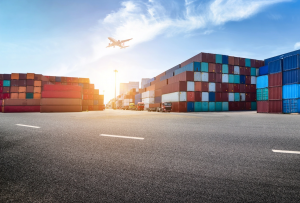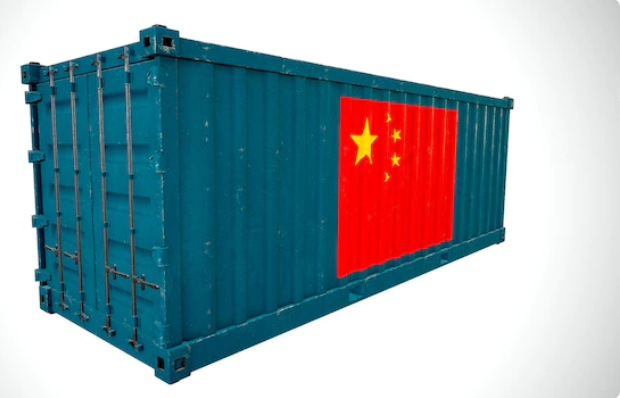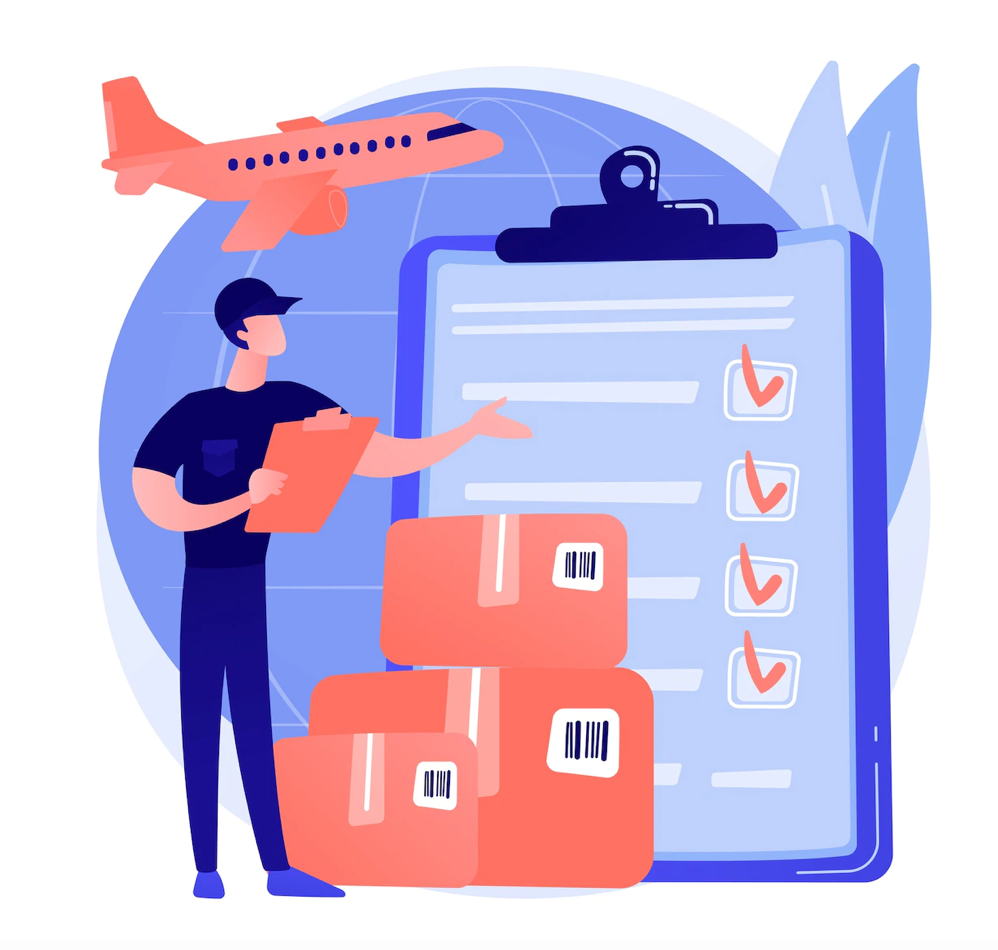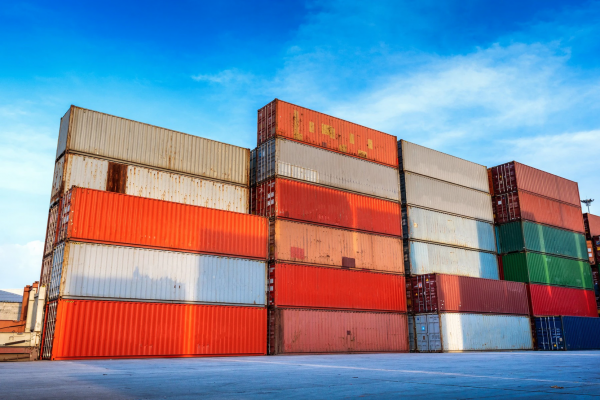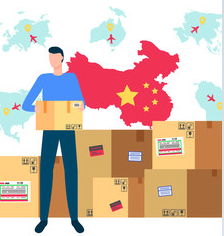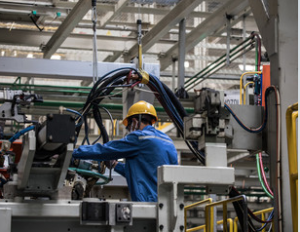
To find the best factories in China, it’s essential to identify the appropriate locations for Chinese factories and the industries relevant to those locations. Then you can narrow your search and identify the perfect Chinese factory for your company to source products.
Manufacturing in China: What Are the Main Industries?
Engineering construction, steel rolling, and furniture construction are all large industries focused on manufacturing in China; all are relevant to product sourcing.
Manufacturing China Companies: the Central Locations
Where factories in China located? And what industries are in China? When you’re searching for a company to make your products, these 7 top locations will help narrow down your search to find manufacturing China companies. For further search refinement, a China product sourcing agent will be helpful.
1. Guangzhou
The top manufacturing industries in Guangzhou are electronics, petrochemicals, and automotive products. From Guangzhou, it’s easy to reach all of China’s railways and highways.
2. Tianjin
Tianjin is the hub of China’s textile and mechanics industries. It’s Northern China’s top manufacturing port.
3. Ningbo
Ningbo’s manufacturing industries include IT devices, chemicals, and electrical machinery. Ningbo benefits from its location to the south of Shanghai; as a result, it is enjoying rapid growth.
4. Qingdao
Qingdao is home to a wide variety of manufacturing industries: automotive products, chemicals, machinery, building materials, and textiles. Qingdao is located on the Yellow Sea coast and is one of China’s liveliest manufacturing hubs.
5. Hong Kong
Medical equipment and advanced technology are the specialties of Hong Kong; they spearhead China’s economic development.
6. Shanghai
Shanghai is one of the world’s largest cities; among its industries are plastics, steel, microcomputers, and cell phones.
7. Shenzhen
Shenzhen specializes in electronics, telecommunications, and computers and is home to manufacturing facilities for major companies such as LG and Apple.
Industrial Clusters
Within the locations of factories in China there are industrial clusters, which consist of suppliers and businesses in particular industries. The interconnectivity of these industrial clusters means that productivity and competition between different sectors can flourish.
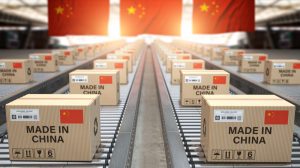
How to Find a Factory in China
To establish how to find a factory in China, begin your search online. Online directories like Alibaba and Global Sources are helpful.
If you can travel, trade shows in China enable you to make valuable connections overseas and meet exhibitors who sell goods similar to your products.
Additionally, network with your business contacts and recommendations for suppliers.
How to find a Factory in China: Narrowing Down your Search
After beginning research on how to find a factory in China, you should now have a comprehensive list of potential manufacturers. Now focus on
- Manufacturers who create similar products to your own
Find a manufacturer who is a specialist. A manufacturer who offers to make anything you want will probably not be suitable.
- Check out the reviews
Search the internet for reviews and ratings to discover more about a company’s reputation.
- Find out if a company exports to the West
If a manufacturer exports routinely to the US or other western countries, they will probably have high-quality control standards. You can expect the manufacturer to observe compliance with packaging, safety, and labeling requirements. Expect fast and efficient international product shipping from Chinese companies experienced with western companies.
Need help finding a factory in China?
Finding Manufacturers in China: Questions to Ask
At this point, you should have narrowed down your search for finding manufacturers in China to between three and five manufacturers.
The potential manufacturers should sign NDAs (Non-Disclosure Agreements) before you proceed. Once done, put an RFQ (Request For Quotation) together for each potential supplier. Send a product design and detail material requirements, product size, and other important information. Within the RFQ, ask about the following:
What is the MOQ?
The higher the number of ordered products, the less you’ll pay for each unit. All factories have MOQs. Aim to balance your spending; don’t buy more products than necessary, but don’t purchase a small amount from an inferior manufacturer.
How Much Will the Samples Cost?
Sample pricing varies greatly from factories in China; it can be free, discounted from standard manufacturing pricing, or standard manufacturing price without a discount. Whatever the stipulated supplier rate, it’s an essential step to take so that you can determine the quality of the products when finding manufacturers in China.
What Are the Production Prices?
Establish how the prices change with ordered quantities when establishing how to find a factory in China. Ask for a cost-per-item breakdown. You will also need to know the shipping cost, tariff cost, and any additional charges included by the manufacturer.
How Long Will Manufacturing in China Take?
When manufacturing in China, time is crucial when choosing a supplier for your products and will help further narrow your supplier search. A lengthy wait for orders is never desirable.
What Are the Payment Terms?
When does the supplier expect a payment, and by what process? New customers often pay in full for the first order before production begins. Ask about improving payment terms once you have a regular supplier.
Finding Manufacturers in China: Product Quality Verification
When manufacturers have returned their RFQs, verifying product quality is essential for finding manufacturers in China. Choose the most promising suppliers and ask for product samples.
Allow for slight discrepancies in the initial samples; they may not match perfectly with your prototype. Improve the sample products by communicating with potential suppliers until you’re happy with the results.
The back-and-forth process of sample refinement will help you build a relationship with potential suppliers until you’re ready to settle on one manufacturer. Find further information here on how to find a manufacturer for a product.
The Pros and Cons of Manufacturing China Companies
It’s essential to be aware of the advantages and disadvantages of manufacturing China companies.
Advantages of Chinese Manufacturers
The strengths of manufacturing Chinese companies are the low-priced goods and advanced infrastructure.
- Production is well-organized because of the wealth of experience Chinese companies possess.
- Major Chinese companies have a worldwide reputation.
- Production costs are highly competitive.
- The best Chinese factories have rapid mass-manufacturing capabilities.
Disadvantages of Manufacturing China Companies
China’s major trade partners are a long distance away from China, which creates several challenges when dealing with manufacturing China companies.
- The language barrier between the Chinese and westerners.
- Complexities with Chinese intellectual property laws.
- The long distance creates lengthy transit times.
- Large minimum order quantities (MOQs) make it difficult for smaller overseas companies to work effectively with China.
Factories in China: Outsourcing
Two models describe Chinese manufacturing outsourcing: OEM and ODM.
OEM
An initialism for Original Equipment Manufacturer, OEM is projected production actioned by the manufacturer. Usually, product manufacturing follows a company’s specifications and design. On completion, the products are branded with the contracting company’s logo.
ODM
ODM, or Original Design Manufacturer, is the process by which a manufacturer designs and creates goods to sell to other companies. A contracting company can then modify products and sell them as a licensed brand.
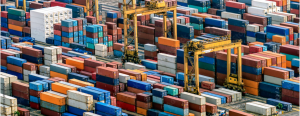
Dealing with Chinese Manufacturers the Smart Way
Western companies looking to do business with China should be aware of the fraudulent activities that occur in China.
Many middlemen often claim to be producers in China. The widely-held belief that large factories are more trustworthy than smaller manufacturers is not always correct. Regardless of factory size, it’s best to ensure that you find a company with experience and the appropriate documents and certificates.
Create and Sign a Commercial Contract with your Chinese Supplier
Some westerners are discouraged by the additional expense that a commercial contract incurs. But an appropriately worded statement of transactional terms will help avoid difficulties during the manufacturing process.
Ensure Supplier Verification
Supplier verification is best accomplished with official records as follows:
Establish the company business name
If a company uses an English name, that name is usually unregistered. Ask to see the supplier’s business license, which should include their Chinese name and company location.
Ensure the supplier’s appropriate local registration.
Now that you have established the company location, confirm this by determining the relevant AIC (Administration for Industry and Commerce). Each area has an AIC.
Run a search on Google by typing
[the location in Chinese text] + AIC
Then you can search the AIC site for the supplier. If you have difficulties, you should find someone fluent in English and Chinese.
Personally Inspect Factories in China or Enlist a Sourcing Agent
Visiting the factory for inspection will be expensive and time-consuming. Find out more here.
Implement Quality Control Testing Throughout the Production Process.
Once production is underway, monitor the process closely to ensure that everything runs smoothly and that there are no mistakes.
Read existing customer reviews and elicit further opinions
Find online reviews and ask the supplier if you can personally approach their previous customers for unbiased reviews of the supplier.
Conclusion
As you’ve seen from the above article, finding factories in China is a complex, labor-intensive process. If you’re new to investigating manufacturing in China, mistakes will inevitably occur.
There is a better way of simplifying and speeding up the process, hire the best sourcing agent in China to take care of the heavy lifting for you.
HUACI Sourcing provides an end-to-end sourcing solution for western businesses. We’ll look after payment options, negotiation, and shipping for you so that you can concentrate on growing your business.
[/fusion_text][/fusion_builder_column][/fusion_builder_row][/fusion_builder_container]


